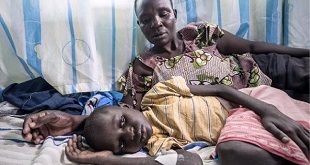
Dan Bukenya’s case shows how the many restrictions imposed lead to increased levels of stress, anxiety and depression
| THE INDEPENDENT | Dan Bukenya felt beleaguered by anguish. He lost sleep most nights and was often testy. He tried to self-medicate to no avail. Only when he agreed to be treated at a hospital did he find relief. “They gave me medicines and I could finally sleep.”
Three weeks earlier, the 32-year-old father of one had been diagnosed with COVID-19 but was unwilling to seek medical help. The days that followed grew more distressful. He would work long hours to try to forget his diagnosis. But the agony persisted.
“I would want to fight everyone. I was so angry all the time,” says Bukenya, who became too dispirited to preach the gospel – something he was fond of doing when not selling phones and other electronics at his shop in Nakasero Market in Kampala. When he finally checked in at a hospital, he was found to also be suffering a mental disorder.
COVID-19 is associated with neurological and mental complications such as delirium, agitation, stroke, insomnia, anxiety or depression, according to a recent World Health Organisation (WHO) study. The many restrictions imposed to slow down the spread of the virus – physical distancing, lockdowns, closure of “non-essential” businesses, travel restrictions – also led to increased levels of stress, anxiety and depression.
Although no public data exists yet in Uganda on the extent of the pandemic’s impact on mental health, some doctors report an increasing number of patients treated for mental illness following the onset of COVID-19 in the country.
“I see between 10 and 15 patients a day which is a small proportion of all the patients who are admitted. I would see many more if the PPE (personal protective equipment) we are required to wear in the ward would not make interactions so challenging,” says Dr Joseph Okurut, the head of the psychosocial team at Entebbe Hospital. “Most of the patients never had mental health issues.”
The pandemic also disrupted the already limited mental health services in many African countries, with patients avoiding seeking services in hospitals for fear of contracting the virus. Cancellation of elective medical services also saw the number of patients drop, while restricted movement hindered people from going to health facilities.
In Uganda, like most African countries, mental healthcare was already weak before the epidemic. The country has only 47 psychiatrists, most of whom are based in Kampala, for a population of 42 million. Mental health services are mainly concentrated around the capital city. Furthermore, mental health units at the regional referral hospitals have been turned into isolation and treatment centres for COVID-19.
Dr. Florence Baingana, WHO Regional Advisor for Mental Health and Substance Abuse, explained that while most African countries have mental health and psychosocial support in their COVID-19 response plans, very often additional budget was not fully allocated to implement these plans, and report insufficient health workers, medical supplies, medicines and personal protective equipment.
To strengthen mental health and psychosocial support as part of COVID-19 response, health authorities in Uganda are increasing personnel and funding.
A team of 35 psychiatrists have been deployed to the Central Region, where the capital Kampala is located, and up to three mental health care workers are attached to every quarantine site, says Dr Kenneth Kalani, head of the Mental Health and Psychosocial Support unit in the Ministry of Health’s COVID-19 task force.
“Around 300 psychosocial workers have been trained across the country to ensure mental health and psychosocial support services are operational.”
However, once patients are discharged many cannot afford to return for a follow-up consultation. Other means of reaching patients such as teleconsultation are already being implemented. In addition, a helpline is also to be launched to allow monitoring of discharged patients.
Through the helpline, COVID-19 survivors will receive automatically-generated calls two days, two weeks and six weeks after leaving the hospital. Depending on their answers to a raft of questions, they may be asked to return for a proper screening and a potential referral to a hospital.
Much remains to be learned about the long-term impact of COVID-19, says Dr Noeline Nakasujja, member of the Ministry of Health’s scientific advisory committee on Mental Health and Psychosocial Support. “We are not sure of the long-lasting effects of the pandemic on people.”
For Bukenya, who has recovered from COVID-19 and is soon to end his mental health treatment, a touch of reminiscence and regret sum up his ordeal. “I miss those days when I couldn’t fear anything. I don’t think I will ever be like I was before.”
****
Source: Reliefworld
 The Independent Uganda: You get the Truth we Pay the Price
The Independent Uganda: You get the Truth we Pay the Price


